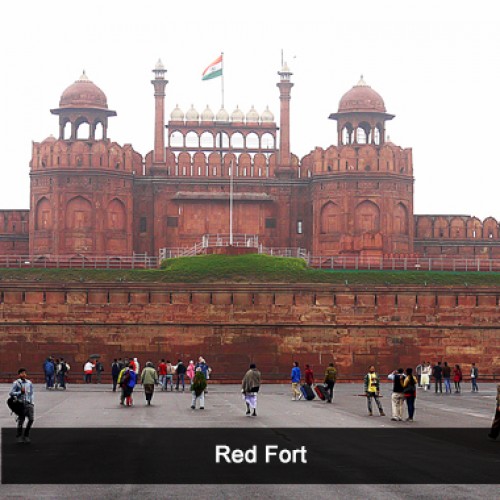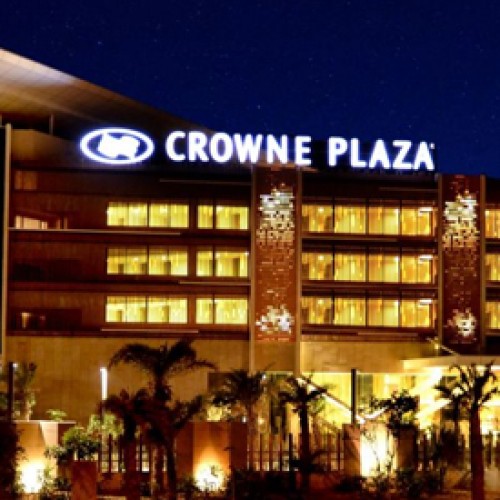Safety First: Hotels’ New Mantra to Win Guest Confidence
In the Unlock 1.0 that came into force on 1st June, the Government of India relaxed many restrictions of the lockdown 4.0 that ended on 31st May. Under the new guidelines issued by the Ministry of Home Affairs (MHA) for the Unlock 1.0, hotels, restaurants, malls and religious places have been allowed to reopen from 8th June except those located in containment zones. Many state governments such as Karnataka, Gujarat, West Bengal have allowed reopening of hotels, restaurants and other places; while some hotels took lead in reopening business activities, many are planning to reopen soon. The guidelines for the initial phase of reopening require hotels, restaurants, malls and places of worships to be regularly cleaned and norms of social distancing and other health protocol strictly adhered. As per the guidelines, restaurants and food courts can use only 50 per cent of their total seating capacity. They have also been advised to encourage takeaways instead of sit-in dining. ASI-protected monuments serving as venues for religious events have also been permitted to open. However, in Delhi and Maharastra, hotels and banquet halls will remain close till further order while malls and restaurants have reopened their doors.
Travel and Hospitality sector is one of the worst-affected sectors from the lockdown induced by the Coronavirus. India’s travel trade bodies have estimated that the sector could take Rs 5 lakh crore hit due to the lockdown. The opening of the economy is expected to help revival in the sector. But returning to old normal would be an uphill task when the fury of the pandemic is yet to subside.
Challenges
Post Covid-19, hotels and restaurants would have to face twin operational challenges in view of the new health and safety protocol. Hotels would have to strictly adhere to health and hygienic related SOPs as prescribed by the government. Their capacity to prioritise the health and safety of their guests would be key to win their confidence. At a time when hotels will be a facing a huge fall in their revenues due to lack of demands and low occupancy, provision for safety and health will increase their costs, reducing their capacity to profit.
At a recent webinar organised by the Bird Group, Suresh Prabhu, Member of Parliament said that the COVID-19 pandemic has clearly and indelibly changed how we live and travel with a great degree of uncertainty looming large over the tourism industry, and the industry’s biggest challenge is to reinstate a person’s confidence in travel. The new protocols will also pose a challenge to the sector as to how to keep the travel affordable while ensuring safety of travellers. He reiterated that in the coming times, it is expected that there will also be an unemployment issue in the travel and hospitality industry, affecting the scenario at large.
He added that to step up the trust factor, the hospitality industry has to dramatically change the way it operates and communicates with people. Prabhu also cautioned that the industry will have to grapple with hassles of varied hues post opening up of the sector, starting from practising social distancing norms to managing human resource.
Radha Bhatia, Chairperson, Tourism Committee, PHD Chamber of Commerce & Industry said, “It is little disheartening to find the sector has not been given its due importance in all the stimulus packages announced so far. We still expect prolongation if a waiver of interest on moratorium period is granted for driving liquidity into the indisposed sector till the time the industry revives.’
Safety First
Preparing to restart business amid a new perspective and a new vision, ITDC is committed to placing health and safety on top priority, while retaining traditional hospitality. The Corporation formed a Health and Safety Advisory Board with leading doctors as mentors. The entire post-COVID initiative is a 360-degree amalgamation of SOPs, HACCP and FSSAI codes, technology, training, medical expertise and strict protocols. Kamala Vardhana Rao, C&MD, ITDC, who is stringently monitoring and guiding the activities says, “The aim is to instil a feeling of reassurance and well-being in the minds of our patrons. Our initiative will be based on international benchmarking and be imbued with our deepest concern for our guests.”
A rigorous training intervention on health and safety protocols has been formally inaugurated by C&MD, ITDC at the flagship property, The Ashok, on 22.05.2020. The first phase covering each specific function will be completed within a fortnight. An empowered and re-oriented workforce and completely safe hotels are ready to welcome visitors.
The Oberoi Group’s Health and Safety Program: The Oberoi Group has rolled out an enhanced health and safety program at all Oberoi and Trident hotels. The Oberoi Group stands committed to being an industry leader when it comes to guest and employee safety as the world is confronted with COVID-19. Oberoi and Trident hotels have always been recognised for their immaculate Housekeeping standards, visible to guests from the moment they enter. Guests have been extremely appreciative of the measures the brand is taking for their safety and staff across all Oberoi and Trident hotels has also welcomed these initiatives.
“At The Oberoi Group, we have always prioritised the health and safety of our guests and colleagues and have been working relentlessly to welcome guests back at our hotels. It is imperative for us to take extraordinary measures to ensure the wellbeing of our guests and our people,” says Vikram Oberoi, Managing Director and Chief Executive Officer of The Oberoi Group.
“Our stringent health and safety standards are now available on the Oberoi Hotels & Resorts and Trident Hotels websites in their entirety. We hope this will help our guests understand in detail the measures we have implemented for their safety and perhaps others too may find these standards useful. Every effort will be made to ensure our award-winning hotels continue to be the safest and most desirable option for our guests and our employees.” he added.
The comprehensive standards can be viewed on the Oberoi Hotels & Resorts and Trident Hotels websites. Please visit Oberoihotels.com and Tridenthotels.com
The Health and Safety standards and procedures will be supervised by dedicated Hygiene & Safety Managers at each hotel, as well as by senior members of the hotel management team. The Oberoi Group has also collaborated with Bureau Veritas, a world leader in laboratory testing, inspection and certification services to validate and review their program. Bureau Veritas will also undertake various virtual and in-person training sessions to supervise the implementation of the Hygiene & Safety Standards at Oberoi and Trident hotels.
Food and beverage at Oberoi and Trident hotels are prepared under impeccably hygienic environments. Restaurants across Oberoi properties ensure safe distancing with necessary safety precautions without diminishing the dining experience of guests. Meals can also be enjoyed by guests in the comfort and privacy of guest rooms, suites and function rooms.
To further support the health and wellbeing of its guests, master chefs across the organisation have researched and developed menus comprising of immunity building wellness dishes and drinks, available at each of the hotels. A selection of these dishes and their recipes are also available on the Oberoi Hotels & Resorts and Trident Hotels websites.
Hotels will additionally ensure their fleet of hotel owned and operated cars are thoroughly sanitised before and after each trip. The chauffeurs, like all other staff members, have guest care, safety and wellbeing as their most important priority.
The Oberoi Group has been recognised for providing service which is intuitive, caring and heartfelt. Whilst the sincerity and genuine care from each member of staff will remain undiminished, hotels will use technology to minimise contact, whether it is for guests checking in or checking out of hotels or for dining in the restaurants or in their rooms.
The Oberoi Group continues to support the community in this time of need. Many Oberoi and Trident hotels have been distributing healthy packed meals and essential supplies during the lockdown through government agencies, NGOs and local authorities. These meals and supplies go to those who are struggling to make ends meet, as well as for the brave and courageous hospital staff and other key frontline workers.
SURAKSHA: The Leela Palaces, Hotels and Resorts launched SURAKSHA in partnership with Bureau Veritas India. This comprehensive program builds on The Leela’s rigorous cleaning protocol and is aimed at elevating sanitisation, hygiene and safety procedures to deliver a safe environment for guests and associates.
“The world around us has changed fundamentally and it has become imperative that we take even more stringent measures to ensure our guests and associates feel safe as we prepare to welcome them back again,” said Anuraag Bhatnagar, Chief Operating Officer, The Leela Palaces, Hotels and Resorts.” “SURAKSHA reiterates our commitment towards the safety and wellbeing of our guests and associates. It redefines our processes so our guests can continue to enjoy our indulgent services and distinctive experiences with peace of mind. While the new Leela experience, as we embrace the new normal may look different, we want our guests and our associates to know that it is thoughtfully curated so they can continue to feel as welcome and comfortable as they did before.”
For the last three decades, the brand has come to be known for delivering an uncompromising level of personalized services with the true graciousness of Indian hospitality. SURAKSHA is grounded in genuine care and is backed by unobtrusive technology so guests have trust and confidence as they begin to travel again and continue to experience the renowned Leela service.
The Leela is taking a holistic approach and is working with Bureau Veritas India to develop and validate additional protocols and sanitisation procedures. These protocols will be reviewed regularly and certified by a team of hygiene experts from Bureau Veritas, India who will also contribute towards raising the level of awareness as well as provide training to associates as these initiatives get implemented across the brand’s entire portfolio.
Enhanced Cleanliness and Safety: The importance of cleanliness in today’s environment cannot be undermined. The Leela is introducing frequent cleaning and sanitisation of all public and personal spaces as well as high touch surfaces with hospital-grade EPA approved chemicals and disinfectants. This includes thorough sanitisation of hotel cars before and after every transfer.
Additional protective gear for all associates and frequent temperature checks for all associates and guests will be implemented across hotels. Adequate measures are being undertaken to rearrange furniture and restaurant seating to ensure social distancing protocols are followed at all times.
At The Leela the associates are trained to maintain the highest standards in food hygiene and safety. Additional measures such as the washing of all dishes at 80 degrees Celsius, preparation of fresh food in smaller quantities and immunity boosters on the menu are being introduced. The company is also relooking at its operational practices for in-room dining and designing new approaches to foodservice.
Technology as an Enabler of Experiences: The Company will leverage technology as an enabler to deliver experiences that are important to its guests. With contactless check-in and check out, full access to digital news and e-papers as well as e-menus across restaurants, guests can have both choice and flexibility at their fingertips.
Technology will also be used to ensure the highest standards of cleanliness are maintained across the hotels. This includes the use of high bar pressure dry steam cleaners as well as electrostatic sprayers to clean rooms as well as restaurants and meeting rooms.
And all this under the supervision of a Hygiene Manager, a dedicated resource appointed at every hotel to ensure all protocols are diligently followed and processes implemented in real-time.
“In an industry that thrives on human interaction our biggest challenge is going to be how we reimagine the guest experience so personalized care and thoughtful service is not lost while keeping safety front and centre and limiting face to face interactions. This requires behavioural training and sensitization and we at The Leela are focussed on this,” added Anuraag Bhatnagar.
Tajness Restrengthened: Indian Hotels Company’s hotels under its Taj, Vivanta, SeleQtions and Ginger brands are implementing enhanced precautionary measures in preparation of hotels opening, to give greater confidence to guests once India emerges from the national lockdown. Some of these measures include a thermal screening of all employees and guests, intensive hospital-level sanitisation of its hotels as well as new contactless processes and social distancing measures. Puneet Chhatwal, MD & CEO, Indian Hotels Company (IHCL), said, “For over a century, IHCL has been the pioneer and custodian of authentic Indian hospitality. Embedded in our DNA is our commitment to ensure the comfort of guests with the greatest sense of responsibility and care. The challenges we face are unprecedented, but we believe the best way for us to demonstrate our commitment is to give our guests and associates the assurance of exacting standards of safety and hygiene. We have augmented our already stringent protocols as we look forward to welcoming our guests to relive the legendary magic of Tajness restrengthened.”
As the country reopens post lockdown, IHCL’s hotels have effectively implemented heightened hygiene and safety procedures for all guests, employees, partners and vendors. The company has implemented multiple recommendations in its hotels and across the organization in accordance with guidelines published by the World Health Organization (WHO), Food Safety and Standards Authority of India (FSSAI) and the Government of India. IHCL has also been working in close consultation with its longstanding global partners, who are pioneers in providing smart sustainable solutions for cleanliness and hygiene for the hospitality industry.
The new experience, which begins from the moment the guest puts foot in a hotel car until alighting from one on their way back home, has been carefully thought through. Mandatory temperature checks will be conducted with all guests and associates entering the hotels. Check-in and check-out formalities will be processed digitally as far as possible in order to have minimum contact. Common and high-touch areas of hotels like cars, lobbies and elevators would witness more frequent and industrial-strength disinfectants being used as part of an escalated cleanliness routine. Restaurants and banquet areas will have fewer tables and all self-serving buffets are suspended. Menus will largely be digital or single-use, with greater emphasis on wellness-oriented food sections for healthier meals and a greater level of immunity.
All guest-facing employees like baggage handlers, valets and guest relations and backroom staff, like housekeeping and engineering, have been adequately trained on social distancing norms as well as the latest precautionary hygiene and safety guidelines. In addition, all associates and vendors will also be provided with appropriate Personal Protective Equipment (PPE) and all work areas will be disinfected regularly. For more detailed guidelines on the standards for safety and hygiene from pre-arrival to check-out please see the annexure.
You might also like
Via.com and Jewelsouk.com enter into unique partnership
Targeting business worth Rs. 200 crore in assisted e-commerce this year, for the first time an Online Travel Agency (OTA) has tied up with an online jewellery marketplace. Now, customers
Best way to explore Delhi in 12 hours
Being the national capital of India, Delhi beholds huge significance for tourists. You can explore variety of tourist spots ancient as well as modern in the city. In this article,
Crowne Plaza opens in Jaipur
IHG launches its 10th Crowne Plaza property in India. Crowne Plaza is expanding its network by introducing its brand new property in the heart of ‘Pink city of India’ -Crowne







